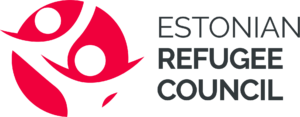ICEX project brings new methods to sexual health education and counselling for migrants
Sexual health is an important part of the overall health and well-being of individuals. It is a state of physical, emotional, mental and social well-being related to sexuality. Sexual health has a major impact on couple and family relationships, but also on the social and economic development of communities and countries.
According to the World Health Organisation (WHO), sexual health involves a positive and respectful approach to sexuality and sexual relationships, free from discrimination and violence. Sexual rights are a human right that includes the right to have control over one’s own body, sexuality and reproduction.
A wide range of sexual health problems also exist among migrants. In many cases, these can be the result of changed life circumstances or past events. They can also have serious consequences for a person’s mental and physical health. Sexual health education for migrants is an important part of public health. Migrants must have access to accurate and comprehensive sexual health education, which must be provided according to the needs of the migrant population.
Achieving good sexual health requires comprehensive and quality education on sexuality and access to health care for all. High quality and comprehensive education can therefore ensure that migrants have access to comprehensive information on sexual health, including information on contraception, STIs and access to sexual health services.
Education must be provided in a safe environment and adapted to the needs of migrants, taking into account cultural and linguistic aspects. In addition, training in sexual health for professionals working with migrants needs to be improved.
The ICEX project responds to these training needs. The project aims to increase the sexual health knowledge and skills of adult migrants and professionals working with them. The aim is also to create innovative and culturally sensitive tools for teaching migrants about sexual health.
The main results are:
- To provide the best available knowledge and pedagogical practices of sexual health education among adult migrants and professionals working with them by developing the ICEX Framework.
- To co-create accurate and easy-to-use materials in sexual health education by developing an online ICEX educational package.
- To provide evidence-based guidance in sexual health education for professionals working with adult migrants by developing the ICEX eHandbook.
Turku University of Applied Sciences is coordinating the Erasmus+ funded project Innovative and Culturally Sensitive Educational Package for Migrants’ Sexual Health Education ICEX. The project partners are Linnasmäki College, Finland, University of West Attica (UNIWA), Greece, KMOP – Education and Innovation Hub, Greece, Escola Superior de Enfermagem de Lisboa (ESEL), Portugal, APF – Family Planning Association, Portugal, and Estonian Refugee Council (ERC).
References:
European Parliament. 2013. Policies for Sexuality Education in the European Union. European Union. Brussels.
Herzig van Wees, S., Fried, S., Larsson, E. C. 2021.Arabic speaking migrant parents’ perceptions of sex education in Sweden: A qualitative study. Sexual & Reproductive Healthcare. Volume 28, June, 100596, https://doi.org/10.1016/j.srhc.2021.100596
Keygnaert, I., Guieu, A., Ooms, G., Vettenburg, N.,Temmerman, M., Roelens, K. 2014. Sexual and reproductive health of migrants: Does the EU care? Health Policy. Volume 114, Issues 2–3, February, Pages 215-225, https://doi.org/10.1016/j.healthpol.2013.10.007
World Health Organization. 2017. Sexual health and its linkages to reproductive health: an operational approach. Geneva. Licence: CC BY-NC-SA 3.0 IGO.







